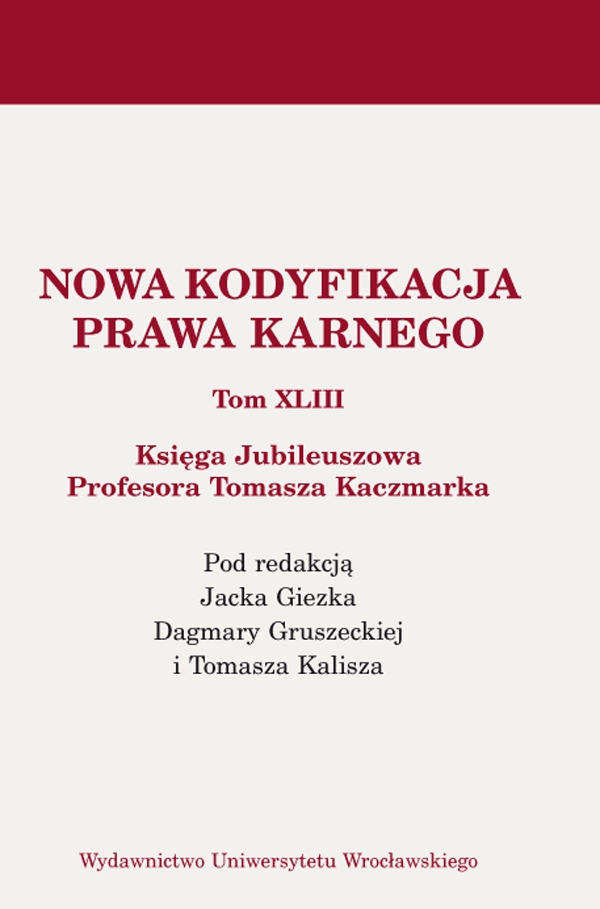

Articles

Is the idea of so-called “secondary legality” defensible?
The aim of the study is critical analysis of the idea of so-called “secondary legality” of an act used by some jurists to explain types of behaviour falling into the category of circumstances excluding lawlessness of an act justification, namely to define the relation between such types of behaviour and the legal system as a whole, and the various sanctioned norms that are part of the system. First, the author examines the relation between the assumption that a type of behaviour which falls within the category of circumstances excluding lawlessness of an act constitutes a legal transgression of the sanctioned norm, and the basic assumptions made in the Polish legal culture concerning the process of creation and application of the law as well as its systematic analysis. He demonstrates that consistent use of the secondary legality category would require a considerable remodelling of these assumptions, above all, rejection of the assumption that legal norms are introduced to be met as well as all consequences stemming from this assumption as well as abandonment of the approach to the law as a set of legal norms that is internally cohesive. Next, the author analyses the internal aspects of the idea of secondary legality of an act. He demonstrates that it encompasses contradictory statements: on the one hand that justifi able behaviour constitutes socially harmful, negative and thus a typical attack on legal interest, and on the other hand that the social benefits ultimately outweigh losses in the case of justifiable behaviour. All the above justifies the author’s final conclusion that the category of secondary legality of an act is not useful.